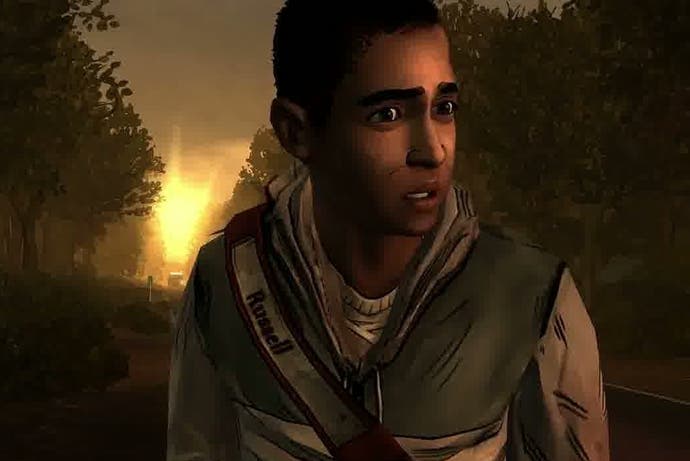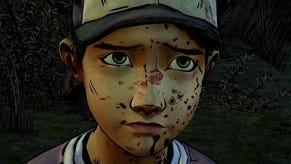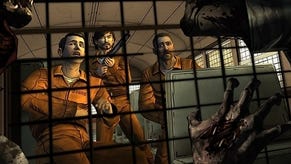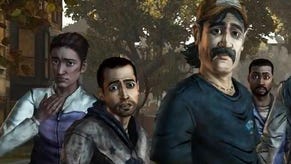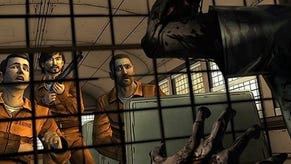The Walking Dead: 400 Days review
Diner dash.
Telltale's The Walking Dead series is a gold standard for terse narrative efficiency. In the span of each two-to-three-hour episode, you'd learn to love, hate, and feel everything in between about its ever-shifting cast of desperate, conflicted survivors. Take three hours of the similarly high-concept zombie apocalypse drama The Last of Us and you'll see its leads travel from one goon-filled building to another with only a few meaningful character and plot interactions sprinkled in between. With its minimalist controls, lack of combat, and only the slightest hint of a puzzle to intrude upon The Walking Dead's slyly authored narrative, it's managed to cram in full stories in the time it takes most games to teach you how to crouch.
Season's One's 400 Days DLC takes this concept one step further by inserting the player into five roughly 15-minute stories set at a highway rest stop. With its off-kilter chronology, suspenseful scenarios, and interweaving plotlines, 400 Days recalls the classic 90s movie Pulp Fiction. It works, to a point - but it's difficult to shake the impression this format isn't suited to the series' strengths.
Part of what made The Walking Dead so special was that it had well-defined, complex characters who evolved over time, yet it told its story entirely through Lee's point of view, so you never quite got a sense of the world beyond what he'd seen first hand. 400 Days pulls back the curtain a bit to show how other folks are coping (or not coping) with things.
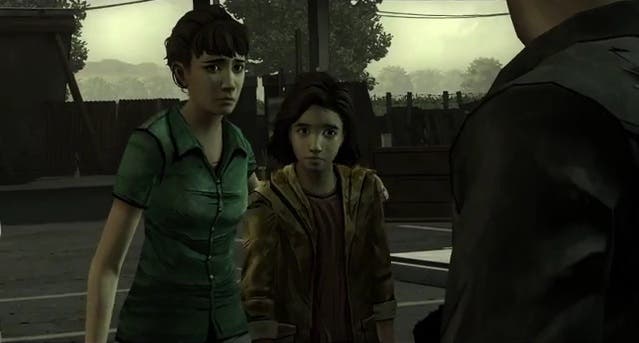
It's not as fascinating as it sounds, though, with situations we've all seen before in zombie fiction over the years. Vince's chapter on a prison bus feels like a re-imagining of the opening parts of the series' first two episodes, and in a surprise to no-one, 400 Days' most prominent threats aren't the shambling, brain-eating type.
400 Days' vignettes are too short to resonate in any meaningful way. As soon as a character starts to grow on you, their chapter ends
But originality is overrated, and the real test of a title's worth is how well it pulls it off. Here's where Telltale still succeeds. Its characters' dialogue generally sounds natural, the scenarios are appropriately tense, the choices are challenging, and the writers do a good job of introducing the new cast without the need for heavy-handed exposition.
And yet, as well crafted as they are, 400 Days' vignettes are still too short to resonate in any meaningful way. As soon as a character starts to grow on you, their chapter ends. Conversely, many of your choices lack weight since you know you're not going to have a chance to see their repercussions until Season Two, which is still months away. I can remember almost all of my choices as Lee, whereas I finished 400 Days an hour ago and am already struggling to remember what decisions I made, since the game would whisk me off to the next storyline before my actions had time to really sink in.
It's no coincidence that 400 Days' best storyline is also its longest. It's also the most like Season One. Playing as a woman named Shel, we have to raise her preteen sister in a survivalist collective that has very, um, strict rules to say the least. Much like The Last of Us, this episode doesn't sugar coat the youngster who's had no choice but to grow up too fast, and Shel's chapter provides a complementary view to Season One's Lee & Clem dynamic.
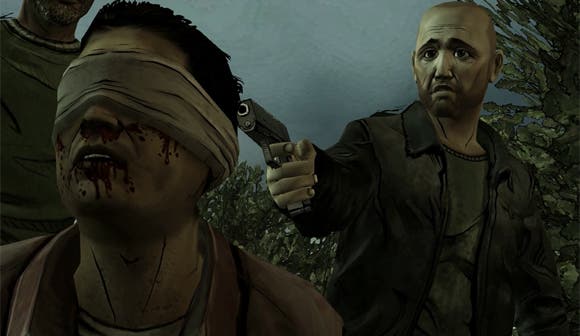
Telltale has said that 400 Days is meant to bridge the gap between Seasons One and Two. It's suggested (but unconfirmed) that at least some of these characters will show up in future installments, but I'm not sure I like the idea of a character I used to make choices as being an NPC. Much like Lee, these personalities are well-defined outside of your own investment in them, but there'll still be a disconnect when characters act differently to how you role-played them. Let's hope Telltale doesn't continue the multiple perspective route, which led to such existential awkwardness as playing both sides of an argument in the studio's noble flop, Jurassic Park: The Game.
None of this suggests that 400 Days is a complete failure. It's not. Telltale understands the zombie apocalypse better than anyone in games, save perhaps Naughty Dog. It knows that sex offenders can otherwise have morals, well-meaning leaders can be cutthroat, kids can be cruel, and murderous looters need friends too. This is a world where no-one wants to be the bad guy, but everyone has to be... at least a little.
One could argue that in this crumbled society it's more about what you do than who you are, and the multiple perspectives in 400 Days give credence to that - but I'm not sure I buy it. People in this world may shed their labels as potheads, businessmen and criminals so they're all just "people," trying to get by, but they can't totally forget who they are and I would've liked to have spent more than a speed date's worth of time getting to know them.
By Telltale's own admission, 400 Days is essentially a collection of "wouldn't it be cool if?" scenarios, and on that level it succeeds. The individual stories are crafted with the same level of care as the main series, but divorced from a larger, more personal tale, these scattershot scenes show their hand as unused B-sides. More ambitious, but less focused than Season One, 400 Days feels like its setting: a serviceable pit-stop on the way to a (hopefully) brighter future.
